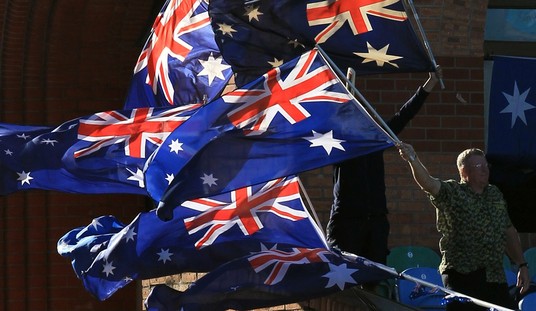A new poll commissioned by the Council on American-Islamic Relations found 12 percent of Muslim voters still undecided about their choice for president, with 3 percent agreeing with Donald Trump’s proposal for a temporary ban on Muslim travel to the United States.
The survey, conducted by Triton Polling & Research between the first and second presidential debates from Sept. 27 to Oct. 5, found that 86 percent of Muslims definitely or probably will vote on Nov. 8.
Forty-four percent identified as politically moderate, while 25 percent identified as liberal and 11 percent as conservative. In 2008, 49 percent of Muslims registered as Democrats while 36 percent were independent. Today, the number identifying as Dems has jumped to 67 percent with 18 percent calling themselves independent. The Libertarian and Green parties had 3 percent support apiece.
Three percent said the Republican Party was committed to “treating all citizens equally” and “protecting religious freedom,” while 32 percent said there was no difference between the Dems and GOP on “standing up for what they believe in.”
Sixty-two percent said this year that the Republican Party is unfriendly to Muslims, while 51 percent felt that way in 2008. Seven percent said the GOP is Muslim-friendly.
Seventy-two percent of those polled picked Hillary Clinton for president, with 4 percent saying they’ll vote for Trump, 3 percent favoring Green Party candidate Jill Stein, and 2 percent picking Libertarian candidate Gary Johnson.
Twenty-two percent of those surveyed were born in the United States. Of the foreign-born voters, 78 percent have been in America for 20 years or more. Seventy-eight percent of respondents were married, and 77 percent had a college degree. There were fewer millennials surveyed, with 69 percent age 40 or older.
Sixty-two percent of those surveyed said they attended mosque at least once a month, while 57 percent said they were not very or not all involved in their mosque’s activities outside of prayers. Just over half identified as Sunni, just 7 percent identified at Shiite, and 33 percent described themselves as “just a Muslim.”
Voters ranked their top issues as civil rights, education, jobs and the economy, protecting students from bullying and harassment, Trump’s proposed Muslim ban, terrorism and national security, and defeating ISIS. Eighty percent ranked defeating the Islamic State as a “very important” issue as voters, while 3 percent dismissed it as “very unimportant.”
The least important issue to Muslim voters, from a list offered by pollsters, was abortion, with 40 percent ranking it as “very important” and 12 percent calling it “very unimportant.”
Thirty percent of those surveyed said they had experienced discrimination or profiling in the past year, while two-thirds said they had not.
The poll also got into current events questions, with 47 percent saying the U.S. didn’t provide enough support over the past year to defeat ISIS in Iraq and Syria and 26 percent opining that the effort put forward by the Obama administration was enough.
Eighty-five percent said Islamophobia had increased in the United States over the past year, while 5 percent said anti-Muslim sentiments had decreased.
Eighty-two percent support settling Syrian refugees in America, while 7 percent opposed. Fifty-eight percent said overseas U.S. military campaigns “create resentment and lead to more terrorism,” while 18 percent called overseas operations “the best way to defeat terrorism.”
CAIR national executive director Nihad Awad said the poll “shows that American Muslims are both worried and hopeful.”
“They are worried that Islamophobia is becoming violent and acceptable with no push back by our nation’s leaders, and hopeful that their high turnout – with more than one million votes – will swing the election and make their voices heard,” Awad said.








Join the conversation as a VIP Member